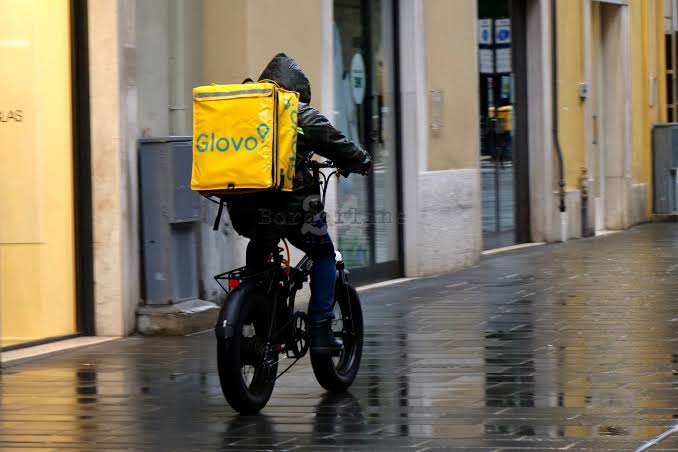Glovo riders in Morocco have launched a 48-hour strike, demanding better pay and working conditions in what has become the latest flashpoint in the country’s food delivery economy.
Supported by the Moroccan Labour Union (UMT), the couriers accuse the Spanish on-demand platform of exploiting workers while pocketing profits from one of its fastest-growing markets.
“We demand an immediate increase in the base rate to cope with the high cost of living,” the riders said in a statement.
At the centre of the dispute is Glovo’s current base rate of just 6 dirhams (about €0.55) per delivery, a fee riders say does not even cover fuel, mobile data, motorcycle maintenance, or insurance. Workers argue they are effectively subsidising the company’s service.
Understanding the Strike
Their demands include double pay for night shifts, national and religious holidays, and full compensation for cancelled orders.
Riders are also calling for an end to Glovo’s controversial grouped-order system, which forces couriers to deliver multiple orders simultaneously without adequate compensation.
Beyond wages, safety has become a growing concern. Riders say the platform’s algorithm encourages speeding and traffic violations to meet tight delivery windows, putting their lives at risk. Workers want the company to redesign its system to prioritise rider safety rather than delivery speed.
Arbitrary account suspensions are another sore point. Many riders report being suddenly blocked from the platform without explanation or the right to appeal.
“We want the prohibition of suspensions without fair investigations,” the union stressed.
The union is pushing for a fair disciplinary process and transparency in how Glovo calculates pricing, incentives, and penalties.
A History of Tensions
This is not the first time Glovo has faced resistance in Morocco. In 2023, riders staged protests in Casablanca, angered by low pay and a controversial “map glitch” that excluded Morocco’s southern regions, labelling them “Western Sahara.”
The company blamed a technical error, but the move drew public outrage and diplomatic sensitivity.
Only weeks later, Glovo struck a deal with Morocco’s Competition Council to avoid sanctions after being under investigation for nearly a year, underscoring the regulatory pressure the platform has faced in the country.
A Global Gig Market
Despite the labour unrest, Glovo continues to expand its operations in Morocco. The company operates in 38 cities, has invested millions, and partnered with thousands of restaurants and retailers.
Yet, as analysts point out, the platform’s growth has been built on a workforce of gig workers who lack formal protections. Unlike traditional employees, observers say riders are treated as independent contractors, leaving them without social security, health insurance, or job stability.
The strike in Morocco reflects a broader global debate about the future of gig work. Across Africa, delivery riders have staged protests against low wages, opaque algorithms, and lack of legal protections. In South Africa, gig workers are also pushing for unionisation.
According to Statista, revenue in the Morocco’s online food delivery market is projected to reach $493.89m in 2025, and is expected to show an annual growth rate (CAGR 2025-2030) of 4.84%, resulting in a projected market volume of $625.61m by 2030.
This surge is driven by urbanisation and smartphone adoption. But without reforms, experts warn that platforms risk deepening inequality by extracting value from a vulnerable workforce.
Talking Points
It is significant that Glovo riders in Morocco are no longer limiting their demands to pay hikes but are linking wages to broader issues such as safety, transparency, and algorithmic fairness.
This shows how gig workers are increasingly challenging not just pay scales, but the very design of the platforms they depend on.
The demand for higher base rates highlights the structural imbalance in the gig economy — riders carry the cost of fuel, data, and maintenance while platforms scale profits.
At Techparley, we see this as a reminder that “cheap convenience” for consumers often comes at a hidden human cost. By benchmarking themselves against traditional labour standards, riders are signalling that gig work cannot continue to operate in a regulatory vacuum.
Unless Glovo actively engages with riders, regulators, and unions, it risks eroding trust in one of its largest markets. For gig work to be sustainable, platforms will need to balance efficiency with dignity, ensuring that the future of food delivery doesn’t leave workers behind.





